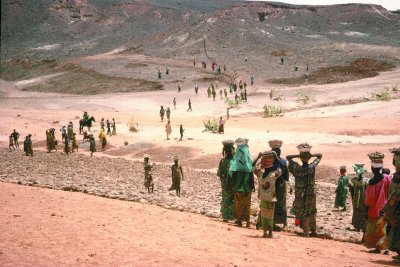The goal of the United Nations Convention to Combat Desertification (UNCCD) is the identification, promotion and implementation of effective responses to land degradation in dryland areas. However, the countries participating in this Convention have recognised for sometime now that not enough is known of the nature, extent and severity of the different kinds of land degradation or of their causes on which remedial actions could be based. Presently available assessment methods have been based on expert estimates and, although valid, are not well reproducible across countries or regions.
The project on Land degradation Assessment in Dryland Areas (LADA) aims to develop and validate quantitative, reproducible assessment methods, to make them widely available and to demonstrate and build capacity for their application in the dryland areas of the world.
The Global Environment Facility (GEF) funded a Project Development Framework (PDF), enabling UNEP and FAO to initiate the development and validation of methodologies through pilot activities to be undertaken in two or three countries over a two-year period. A stakeholders’ meeting was convened in Rome, 23-25 January 2002, to discuss priorities, strategy and technical aspects of the LADA work, with emphasis on this initial period.
The first plenary sessions discussed papers on various land degradation perspectives and existing national and regional approaches to land degradation assessment, and reviewed the PDF implementation strategy. The meeting then dealt with technical and policy aspects in parallel sessions.
The technical advisory group explored conceptual and methodological issues in the light of the outputs specified for the PDF, and reported to the final plenary session on:
The Steering Committee session established a provisional Steering Committee comprising GEF/UNEP, FAO, UNCCD, the Global Mechanism of the UNCCD and UNDP; the donor community; national representatives; technical experts, institutions and organisations; the NGO community; regional organisations linked to the UNCCD; as well as observers. The session agreed on terms of reference for the steering committee and provided a summary of its views to the final plenary session, focusing on policy, information and partnership aspects as well as the geographical scope of the LADA activities.
In its final plenary session the meeting discussed the two reports from the parallel sessions. Recalling that LADA hinges on the underlying principle of attaining global environmental benefits (in terms of international waters, carbon sequestration and biodiversity), the main conclusions from the meeting were:

Women working on land reclamation in Niger
FAO/18875/F. Paladini and R. Carucci